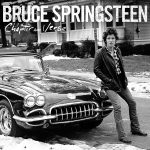
Everything about “Jackie” is beautiful.
From the first lady’s wardrobe to the symmetry in each frame to the booming score, the film’s beauty is eerie, haunting even, among such obvious tragedy.
Director Pablo Larraín uses this beauty to tell the story of Jackie Kennedy (Natalie Portman) as she attempts to craft her husband’s legacy just days after his assassination. Framed by an interview with a reporter (Billy Crudup) — an echo of a real interview with Time reporter Theodore White — at one of the Kennedy homes in Hyannis Port, each scene is a jump to historical moments in Jackie’s life before and after her husband’s death.
Because of this, it’s easy to get lost in history, but the history is so fascinating that it is worth mentioning. The screenplay lifts a large amount of dialogue directly from the interview notes of White, released only after Mrs. Kennedy’s death, and other concrete evidence, such as her televised tour of the White House in Feb. 1962.
Hearing Portman speak the same words as the former first lady so many years later is nothing short of chilling. From the infamous romantic idea of Camelot to her description of the expression on her dear Jack’s face as he lay dead in her lap, it’s easy to believe she really said these things without historical proof.
Portman’s performance is why this Jackie is so real. The uncanny resemblance and perfect accent is only a part of it, as she manages to take audiences through an already complex woman’s grief.
There are multiple frames where Portman stares straight at the camera, whether she is speaking to someone else or looking in the mirror as she scrubs Jack’s blood off of her face. Something about Portman is simply captivating. Even in those horrifyingly tragic moments, it’s impossible to look away.
The elephant in the room is, of course, the assassination itself. Few films have dared to recreate such an iconic event, as there are facts and even a video to show one version of what happened. Steven Spielberg’s “Lincoln” showed nothing of what happened in Ford’s Theater, opting instead to trust the audience to imagine the assassination.
Kennedy’s assassination takes up less than five minutes of the 99-minute film. Instead, the film captures a series of events many are familiar with: one bullet in the neck, another in the head, Jackie scrambling to grab the pieces of her husband’s skull from the back of the car. It’s gory and earns the film’s R-rating, but in a way, that seems so plausible that instead of thinking about Kennedy’s death, you think immediately of how horrible it must have been for Jackie.
The supporting roles, especially after the assassination, really come into play. Nancy Tuckerman (Greta Gerwig), Jackie’s personal secretary and chief of staff, seems to be Jackie’s only female friend as her life falls apart. Jackie also leans on brother-in-law Robert Kennedy (Peter Sarsgaard) when arranging the funeral, demanding a procession as grand as Lincoln’s.
There is much to be said for Sarsgaard’s performance, as it’s clear he is grieving but worries about Jackie’s sanity. He snaps at times, serving Jackie the cold, hard truth, especially when she says she wants to walk with Jack’s coffin to Arlington National Cemetery. It’s easy to empathize with him, especially knowing he, too, would be assassinated five years later.
One of the most remarkable features of the film is the flawless integration of real, historical footage. “Jackie” was filmed on 16mm film for this reason, and the impact on the integrity of the storyline is clear. The most striking example of such cinematography is Portman looking out of the limo at the funeral crowd, a reflection of the real 1964 footage rushing by on the glass window.
If it isn’t clear already, every element of “Jackie” is exquisite in the strangest way, because it feels strange to see these beautiful things as they surround absolute tragedy. This feeling is evident even in the score, composed by Mica Levi. The film is punctuated by booming orchestral interludes, led by cello and violin, that do a great deal of emotional heavy lifting when words don’t seem appropriate. And, of course, the scenes dominated by the loud melodies from the musical “Camelot” are the most eerie.
There is a lot to be said for a film that looks back at such a public yet elusive woman. Jacqueline Kennedy Onassis, as she would become, seems to be dominated by a dignified sadness in most of her life, losing two children and then her husband. Yet, aside from Portman’s unforgettable — perhaps Oscar-worthy — performance and Larraín’s brilliant direction, there are details we will never know.
Perhaps it’s better that way, to leave the first family on the pedestal Jackie helped put them on. “Jackie” makes it easy to do with all of these elements in such magnificent harmony. It’s easy to believe that every audience member will leave the theater with an image of Portman quoting “Camelot” and explaining her husband’s legacy, as the real Jacqueline Kennedy did to Theodore White decades ago.
“‘Don’t let it be forgot, that once there was a spot, for one brief shining moment that was known as ‘Camelot’ — and it will never be that way again.”














